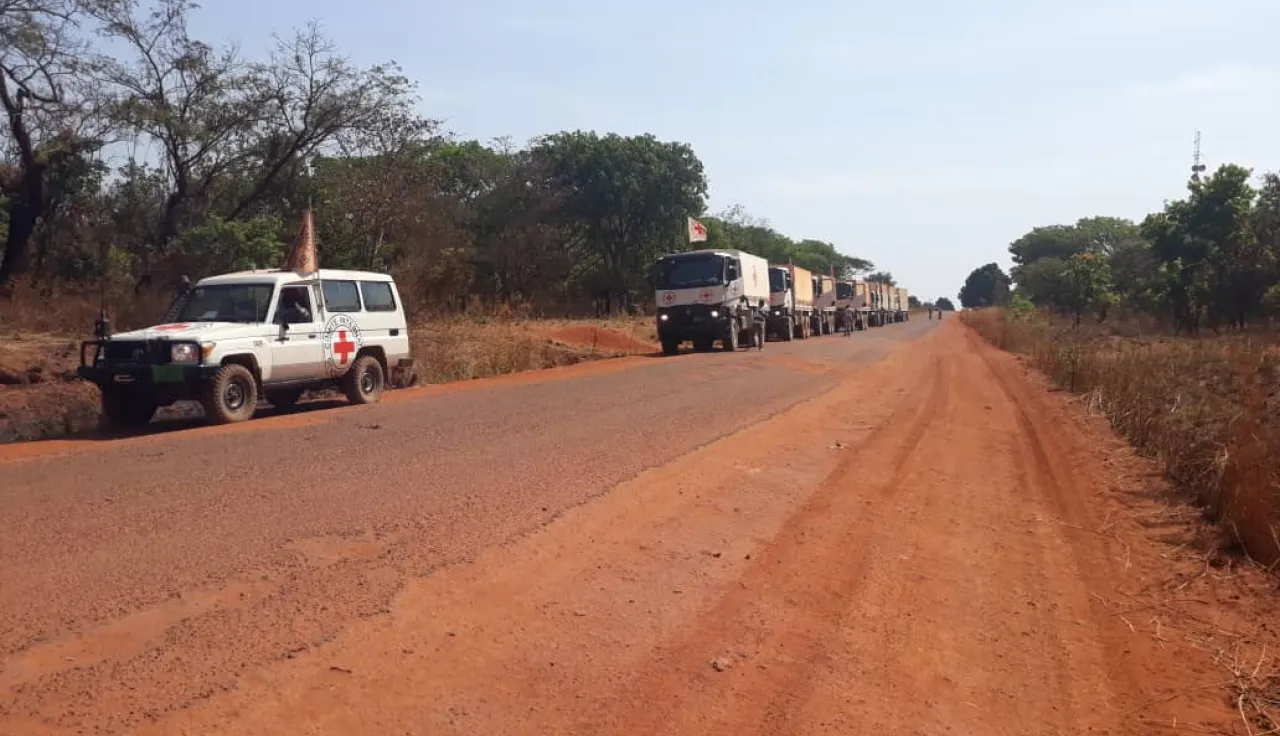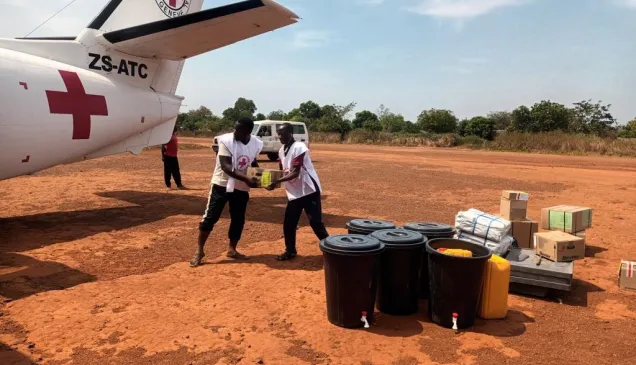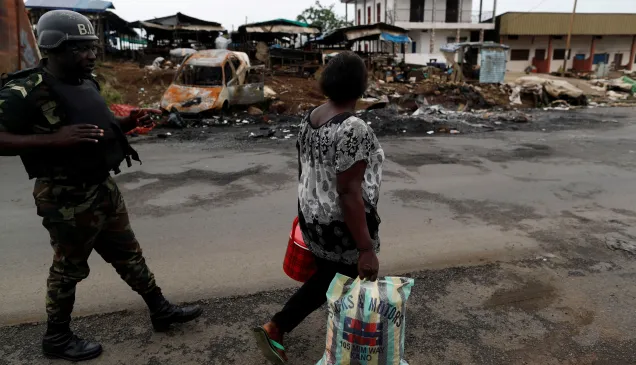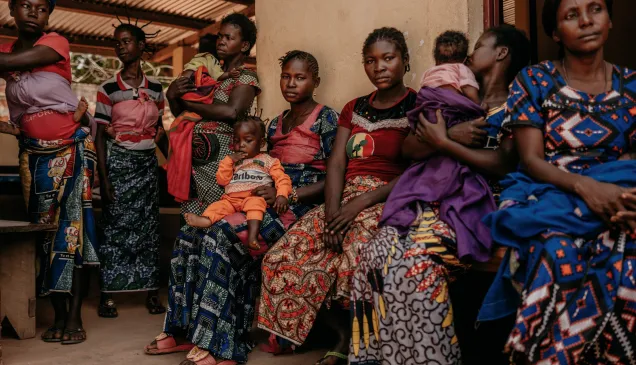Despite the dangers along the road between the border town of Garoua Boulaï and Bangui, the convoy of ten trucks and three cars completed its 1,400-kilometre trip and arrived safely in the Central African Republic, where ICRC staff working to help people affected by renewed fighting.
“This is the first convoy organized by the ICRC this year. It received immediate approval from all parties to the conflict to deliver humanitarian aid. This is an encouraging signal for respect for international humanitarian law," said Yves Van Loo, deputy head of the ICRC delegation in the CAR.
“The convoy was not accompanied by an armed escort because, as ICRC is a neutral organization, it is imperative that our humanitarian action not be associated with any armed actor. The ICRC must work on the basis of the acceptance of all, "he said.
According to the United Nations Office for the Coordination of Humanitarian Affairs (OCHA), over 500 trucks carrying essential supplies sent by the UN and its partners – including food and medicines – are stuck at the border between Cameroon and the Central African Republic, along with 1,100 truckloads of commercial freight, a situation that began when fighting started on 17 December 2020.[1]
Much of the goods imported into the landlocked country arrive by road from Cameroon. "The Central African Republic has no direct access to the sea, which is why we take care of transporting goods - which we buy locally or abroad - directly to the Central African Republic", explains Martine Fouda Eyango, who is responsible for the ICRC warehouse in Cameroon. The border blockade has increased the prices of some basic items by as much as 240% in Bangui and the surrounding area.[2]
The intense fighting has led to a worrying situation in several parts of the country. Conflict has displaced some 129,000 people[3]. They are living under precarious conditions, with no source of revenue and no real prospect of being able to go home.
“My husband has gone off into the bush. We used to grow food in our fields, but now we can’t go there because of armed men. We’re trapped here,” explains Marie. Since January 2021, she has been living with her four children in Grimari, some 200 km north-east of the capital Bangui.
The difficulty in obtaining food is a particularly serious situation for children, as they are especially vulnerable. According to the United Nations, almost 2.3 million people are likely to be short of food in the Central African Republic during 2021.
“This aid will meet the most urgent needs of the thousands of families trapped by the fighting. We hope to send more convoys over the next few weeks, to replenish our stocks of food, medicines and other essential goods,” explains Van Loo.
[2] Source OCHA
[3] Source OCHA
For further information, please contact:
Rana Elwakeel
ICRC media relations, Bangui
Tel: +236 75 27 25 79 – Email: relwakeel@icrc.org
Halimatou Amadou
ICRC media relations, Dakar
Tel: + 221 781 864 687 – Email: hamadou@icrc.org




